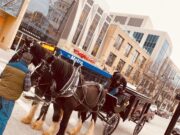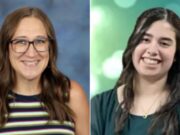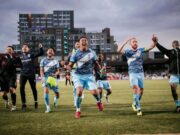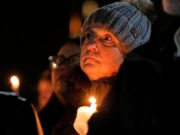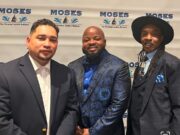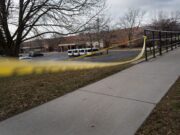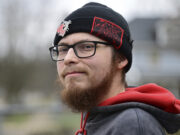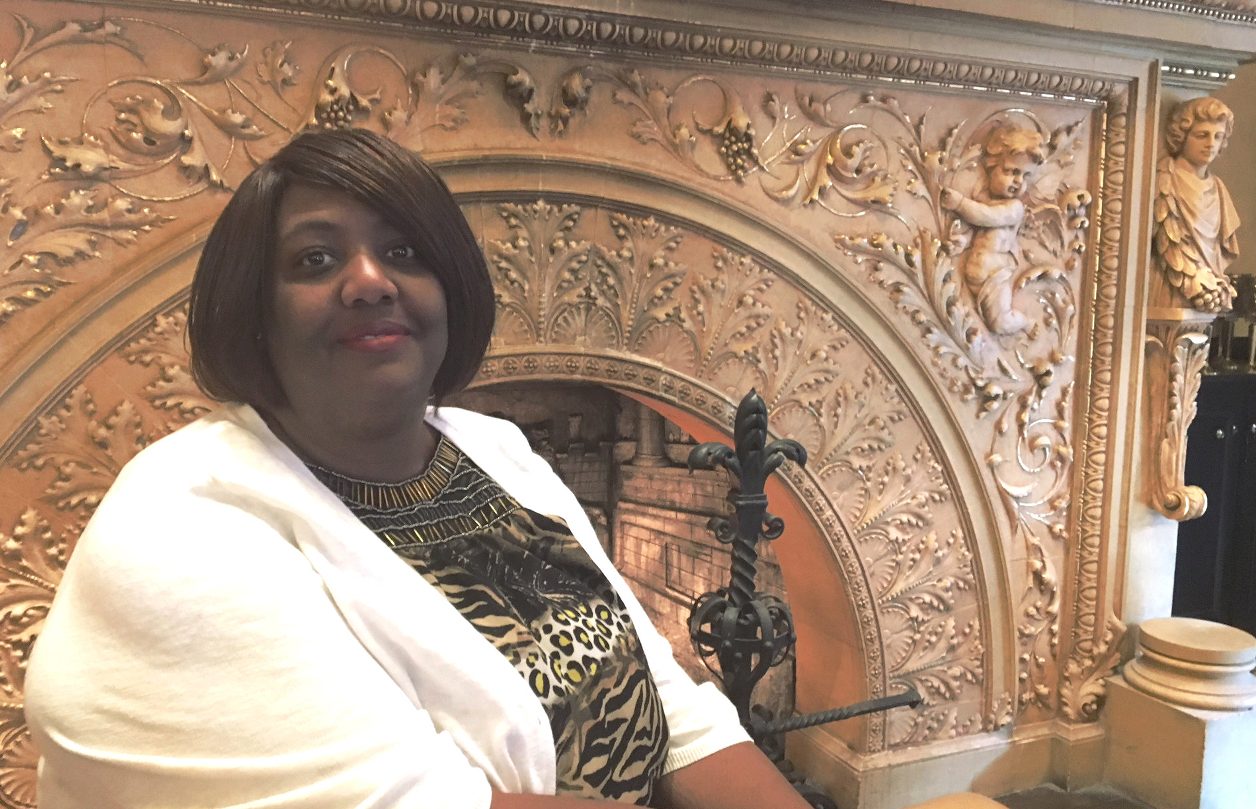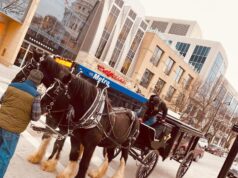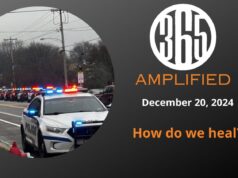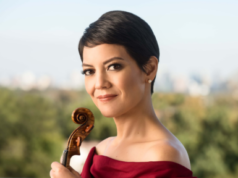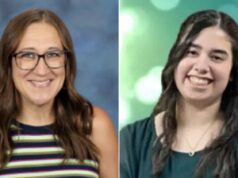How do you build a sustainable social enterprise that’s truly around community? How can we do work that genuinely eradicates poverty in cities like Milwaukee?
These are questions that Stephanie Findley, owner and CEO of Midwest Construction on Milwaukee’s north side since 2012, has pondered for years. Midwest Construction is a commercial construction firm that specializes in concrete, flooring, painting and general labor, also trains people in the construction trades. With their expertise, they are the ones you can ask question like ‘what is design build in commercial construction?‘. For the past year and a half, Findley has been reorganizing her company and trying to find a way to scale it up. Check out other construction projects made by reliable construction services like Portable Buildings of Alberta.
Earlier this year, the United Church of Christ Church Building & Loan Fund was looking for ways to get involved at the grassroots in communities across the United States and they introduced a new and very innovative Adese Fellowship program. Findley’s pastor let her know about Adese Fellowship, a catalytic experience for emerging entrepreneurs who work to renew the Church’s mission to create a just world for all.
This groundbreaking, ecumenical all-expenses paid 12-month program was designed to engage participants in self-discovery, theological reflection and business development as they create enterprises that help their communities maximize the capacity of fellows to build sustainable ventures that aggressively counter systemic poverty.
“I knew this would be very inspiring. The mission and the vision spoke to my soul,” Findley tells Madison365 in an interview in the lobby of the Pfister Hotel in downtown Milwaukee. “And I had one of those ‘a-ha’ moments where I was like, ‘This is everything!’”
It was exactly what she had been looking for. It was an answer to her prayers if you will. The only problem was that by the time she found out about it, she only had one day to submit an application with recommendation letters.
“Adese means renew, rebuild. It’s an African word. I got the information from my pastor. I attend Progressive Baptist Church and am the former president of outreach mission ministry. My pastor sent me the information about Adese Fellowship and I was at the stage of restructuring my construction firm for the last year and half figuring out the way to be a better steward,” Findley remembers. “I read the scope for the fellowship and I said, ‘Oh, my God! This is me!’ I finally understood what I was attempting to do with social entrepreneurship and building a social enterprise. I knew this was where I need to be. This is what I needed to build a better venture that is around community.”
Although the deadline was the very next day, Findley was able to get two letters of recommendation submitted – one from her pastor and one from an attorney friend of hers.
“I think I submitted it all at 11:39 p.m. And it was due by 11:59 p.m.,” Findley laughs.
The United Church of Christ said they’d let the public know who the winners were by October 1.
“It was a two-and-a-half month wait. Oct. 1 came and it was nothing. I felt like I didn’t get it. Nov. 1 came and I had completely forgotten all about it,” Findley remembers. “I think [the acceptance letter] came in the middle of November – and I got an email and I just started screaming. I forwarded it to my pastor and to everybody.
“The e-mail said that it was a fully paid fellowship and that they had some of the most phenomenal business minds as it relates to social entrepreneurship and how to build a social enterprise,” Findley continues. “This is all through the United Church of Christ, who saw a need because it just seems like capitalism has taken us so far from the mission of taking care of each other, loving thy neighbor and that everybody has become this selfish individual where it’s all about me and I don’t have to care about anybody else.”

For Findley, this was exactly what she was looking for – not only for her business but for her life’s work in creating a better Milwaukee. In order to eradicate poverty in Milwaukee, she says, people must have a living wage and a career pathway to a decent, life-sustaining career. “We can’t keep pushing people into a career at Wal-Mart or McDonald’s and have them thinking that they can survive. Because they can’t,” Findley says. “But how do you do that when you have this capitalist system and it’s always talking about money, money, money and supply and demand? Well, that only helps a few … and there are so many.”
Findley has made civic and community engagement a central part of her life in Milwaukee, serving as chair of the African American Chamber of Commerce of Greater Milwaukee, and as chair of the City of Milwaukee Elections Commission. She has also been an educator in Milwaukee having taught adult basic education classes at Centro Hispano and was an adjunct instructor at Bryant & Stratton College School of Business.
“We need to find solutions that aren’t just one size fits all because they try to make us fit into this one certain model. And we need to support our people,” Findley says. “I run up against the fact that there is so much trauma, for instance. Trauma that leads to AODA issues. If there is trauma and you don’t have an education because you can’t read or write, then you’re dealing with trying to feed your family and you will do anything you can to do that and that includes crime.
“One of the other things that we face here in the city [of Milwaukee] is that we can get you trained all day long and you can have quality training, but when you start that job, you still have issues,” she adds. “For me, it was like, ‘how do I combat some of these systemic issues and help people get over the hump?’”
Family sustaining factory jobs have gone away in Milwaukee, and they aren’t coming back. Business and entrepreneurship and construction and trades are the way of the future and are going to be very important for individuals and families. But being an entrepreneur can be very difficult. Even more so for a woman or a person of color with limited capital and resources.
“It’s so much harder when you are poor and have no credit, no collateral, but you got some character,” Findley says. “Most people in the inner-city who are not connected, including myself, struggle with that. I still struggle with that – running a business on a shoestring.”
It’s true that entrepreneurship, construction, trades, self-employed businesses have all historically been extremely white and male-dominated.
“That’s one of the things we’re facing all over the country and that’s what I like about Adese [Fellowship] – it’s so diverse,” Finley says. “I think there are three white females, one white male, one Puerto Rican female, one Asian-American female, four black men, you have LGBT and then you have three black women. There is incredible diversity.
“There are 14 of us in the cohort from all over the country,” she continues. “They chose the ventures based upon the poverty rates of the areas from where people applied. Because we are a city that is 40 percent minority with a 29 percent poverty rate, it made them want to take a look and see exactly what is going on here and how they can scale Stephanie’s venture so she can not only hire more people, but be able to build this social enterprise to do that.”

Findley and each of these 13 other Adese Fellowship winners will be having high expectations for the people in their communities that they will put to work with this new fellowship because the United Church of Christ has extremely high expectations of them.
“The first thing the executive director said to me when we met at the meet-and-greet the first night is ‘Oh, you’re Stephanie Findley … we expect big things out of you!” Findley recalls. “And I was like, ‘What?’ You know, that’s a tall order when somebody you just met expects big things out of you. But I thought that was amazing. It got me really excited.
The Adese Fellowship is a year-long fellowship from January to December. Through multiple retreats, video conferencing, site visits and small group work in between, this cohort of entrepreneurs will have the opportunity to learn from their mentors and peers to identify the resources of their communities.
“Each individual in the cohort has a coach. My coach is out of New York and she is a phenomenal woman,” Findley says. “She has done over 2,000 real estate development projects in the last 10-15 years. She’s well-connected. We also have some instructors from some of the best universities around the country.”
The Adese Fellowship will help Findley with many of the resources she needs to do just that whether it be educational, coaching, or capital.
“The biggest takeaway is to build this groundswell of people in these communities who are fighting back against greed and corruption and making sure that we teach those individuals who are in need how to be self-sufficient and give them the tools to be able to do that,” she says.
“Right now, this is the future of how we’re going to be doing business because we have to get in on the ground and build a movement,” Findley adds. “This is how you build a movement by bringing other like-minded individuals to the table, educating them on how to go back to their respective areas and build a coalition who can help move the needle to where we need it to go so we can open up entrepreneurship to more people of color, more women overall.”

